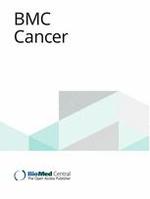BACKGROUND:
Several efforts have been focused on identification of pathways involved in malignancy, progression, and response to treatment in Glioblastoma (GB). Overexpression of PKCε was detected in histological samples from GB, anaplastic astrocytoma, and gliosarcoma and is considered an important marker of negative disease outcome. In multiple studies on GB, autophagy has been shown as a survival mechanism during cellular stress, contributing to resistance against anti-cancer agents. The main object of this research was to determine the influence of PKCε downregulation on the expression of genes involved in autophagy pathways in glioblastoma cell lines U-138 MG and U-118 MG with high PKCε level.
METHODS:
We conducted siRNA-mediated knockdown of PKCε in glioblastoma cell lines and studied the effects of autophagy pathway. The expression of autophagy-related genes was analyzed using qPCR and Western blot analysis was carried out to assess protein levels. Immunostaining was used to detect functional autophagic maturation process.
RESULTS:
We found that these cell lines exhibited a high basal expression of autophagy-related genes. Our results suggest that the loss of PKCε contributes to the downregulation of genes involved in autophagy pathways. Moreover, most of the changes we observed in Western blot analysis and endogenous immunofluorescence experiments confirmed dysfunction of autophagy programs. We found that knockdown of PKCε induced a decrease in the expression of Beclin1, Atg5, PI3K, whereas the expression of other autophagy-related proteins mTOR and Bcl2 was increased. Treatment of control siRNA glioma cells with rapamycin-induced autophagosome formation and increase in LC3-II level and caused a decrease in the expression of p62. Additionally, PKCε siRNA caused a diminution in the Akt phosphorylation at Ser473 and in the protein level in both cell lines. Moreover, we observed reduction in the adhesion of glioblastoma cells, accompanied by the decrease in total FAK protein level and phosphorylation.
CONCLUSIONS:
Effects of down-regulation of PKCε in glioma cells raised the possibility that the expression of PKCε is essential for the autophagic signal transduction pathways in these cells. Thus, our results identify an important role of PKCε in autophagy and may, more importantly, identifyit as a novel therapeutic target.

